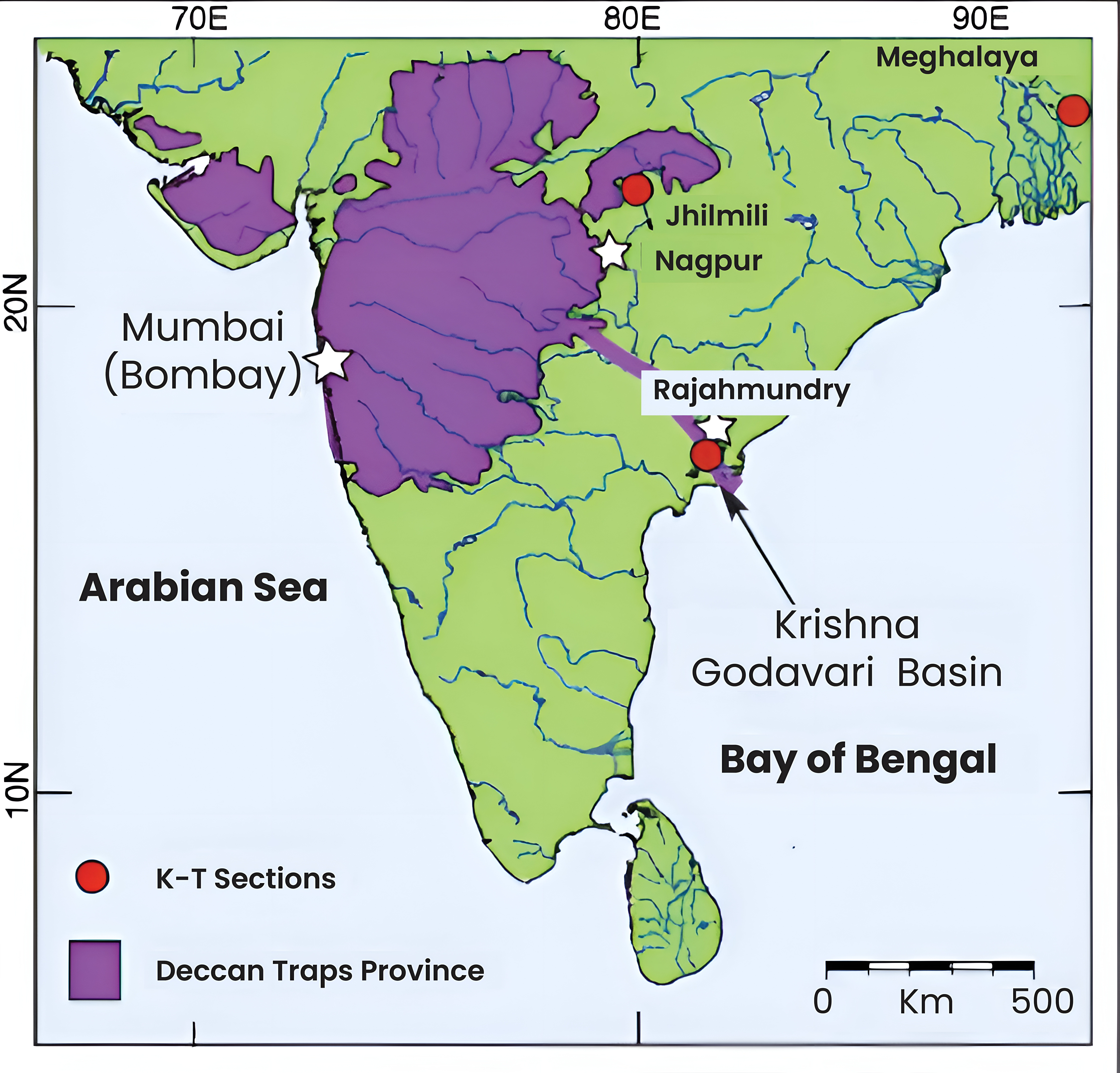Study has been conducted by the Birbal Sahni Institute of Palaeosciences (BSIP).
Key Findings:
- Higher resilience of Tropical flora to climatic stresses: Deccan Volcanism did not have such negative impact on tropical flora.
- However, toxic greenhouse gasses into the environment due to volcanism affected the Cretaceous-Paleogene (K-Pg) mass extinction due to rise in global temperatures.
- K-Pg mass extinction is the most recent of the Phanerozoic ‘Big Five’ mass extinctions.
- Occurred at the end of the Cretaceous and the beginning of the Tertiary period.
- It has devastating consequences for terrestrial faunas (dinosaurs, in particular).
- However, toxic greenhouse gasses into the environment due to volcanism affected the Cretaceous-Paleogene (K-Pg) mass extinction due to rise in global temperatures.
- Relevance: If left undisturbed, tropical rainforests may quickly recover under favorable climatic conditions.

About Deccan Volcanism
- It was a major event of volcanic eruptions which occurred ~66 million years ago.
- It continued for several hundred thousand years before and beyond the K-Pg boundary.
Deccan Trap
- Deccan volcanism produced the longest lava mega-flows (basalt lava) on Earth, spanning over 1500 km.
- It formed during India’s northward migration as it passed over the Reunion hotspot (which is today the Reunion Island).
- This hotspot is still active today and last erupted.
- It covers an area of 500,000 km2 of the west-central Indian subcontinent.
- Weathering of Basalt has led to the formation of Black or Regur soil.



